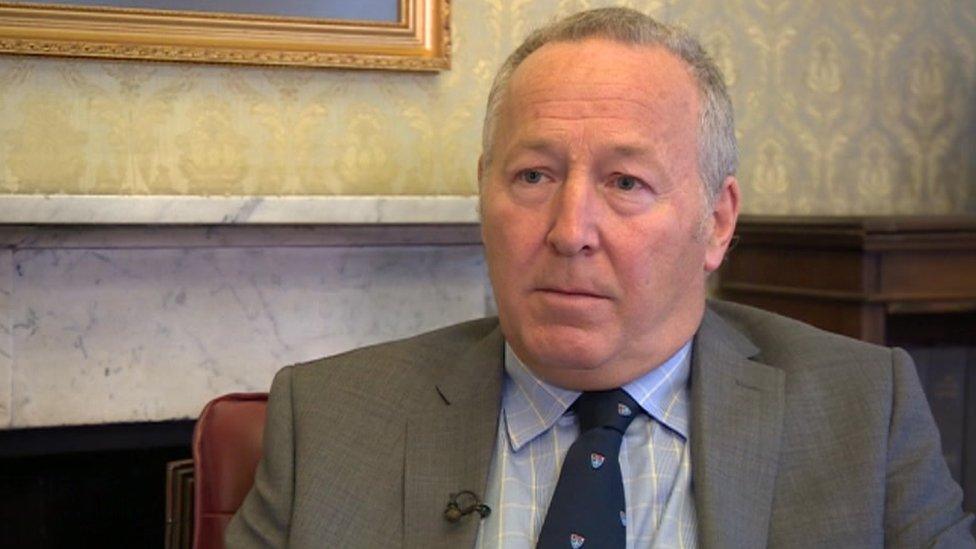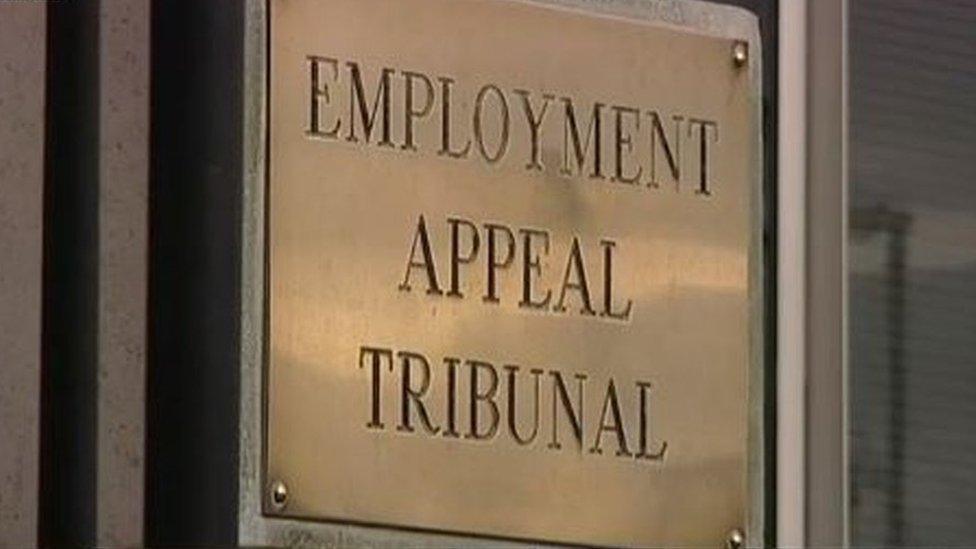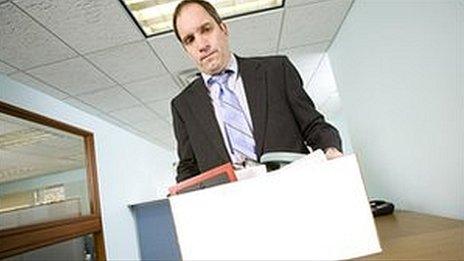Employment tribunal fees 'may put off claimants'
- Published

Dick Palmer said his daughters were only able to take their case to a tribunal after he agreed to pay their fees
The father of three sisters who brought employment claims against an award-winning chef has said tribunal fees could put people off filing a dispute.
Dick Palmer's daughters, Bethany, Lucy and Esme, recently had claims including sexual harassment and unfair dismissal upheld against Ben Cox, co-owner of the Star Inn at Sancton near Beverley.
But he said the case only went ahead after he agreed to pay a £250 fee.
The Ministry of Justice says a review of the charges is ongoing.
Mr Palmer said: "The costs just keep on going up and up and, when you sit down and think of it all, it would be enough to put most people off but my daughters were convinced something had to be done and we had to bring this case forward."
Last month a tribunal found Bethany, 24, and Lucy, 21, were unfairly dismissed and Lucy and Esme, 17, were sexually harassed by Mr Cox.
The restaurant was also found to have breached working time regulations by denying Bethany and Lucy a rest break.

Figures show the number of tribunals has dropped since fees were introduced in 2013
Tribunal fees were introduced by the government in 2013 for the first time since the system was created in 1964.
Under the scheme, workers have to pay £160 or £250 to lodge a claim and a charge of either £230 or £950 if the case goes ahead, though exceptions apply.
People in receipt of certain benefits, on a low income or with only a small amount of savings and investments may be eligible to have fees waived or reduced.
Mr Palmer said: "Without doubt people have been put off [by the cost]."
He said he believed the change meant the legislation was now "stacked heavily in favour of the employers".
"Without my support both morally and financially we could not have brought this case to court," he said.
"The girls were working part time. My youngest only worked one or two shifts a week."
'Priced out of justice'
The introduction of charges has coincided with a steep drop in the number of tribunal cases.
According to recent figures, about 13,500 single-person cases were brought per quarter in the year to June 2013.
Following the introduction of fees the average quarterly figure dropped to about 4,500 between October 2013 and June 2015 - a decrease of 67%.
Unison, the union, has previously said fees has left some workers "priced out of justice" and it is taking its battle to have the charges abolished to the Supreme Court.
A Ministry of Justice spokesperson said: "It is right that those who can afford to should make a contribution to the cost of employment tribunals.
"At every stage we are protecting the most vulnerable by ensuring those who have limited means have fee waivers and are not excluded from seeking redress.
The ministry will publish the outcome of its review of fees in due course, it added.
- Published12 June 2014

- Published29 July 2013

- Published29 July 2013
